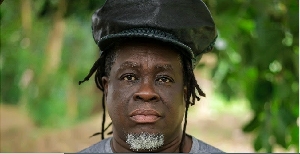A GNA feature by Christian Agubretu
Accra, Sept. 14, GNA - That agriculture is the mainstay of Ghana's economy and that about 60 per of the population is engaged in it, makes one wonder why it cannot form the industrialization base of the country, where factories are fed with raw materials on a sustainable basis. It appears Ghanaians have failed to appreciate the fact that if nature gives you lemon you make lemonade out of it. The occupation of a particular geographical area should make the people turn around what nature gives them and add value to it.
This brings to mind the popular saying during geography classes in the 1960s - "just tell me the longitude and latitude of any place on earth and I will tell you the people who live there, the clothes they wear and the food they eat".
Economists advise that one should produce what one has comparative advantage in. It is in this direction that the growing of hybrid mangoes should be considered with seriousness. Mangoes grow very well all over the country and one needs not to undertake any feasibility studies to know that mangoes do well in tropical Ghana. The production of the fruit on a large scale could generate processing factories all over the country for the canning or bottling of mango juice.
Take any district of the country for example, where there is no factory and there is no large-scale production of raw material to warrant the citing of a factory. For the sake of convenience, let us presume that this district has 200 communities and each community has 200 houses where a mango tree is planted in each home and it does well. In the first place the people are encouraged to plant trees to provide shade as well. The hybrid mango starts bearing fruits within three to four years. With each tree producing 100 fruits a year, for example, one would be having four million mango fruits. Again, Primary and Junior High Schools could plant mango trees on their compounds. Farmers in our communities could also grow mango trees. If each district can practice this, it would be mandatory for every landlord to plant a mango tree in his/her house even in Accra to provide shade and also give additional income to the landlords. Without doubt, these figures would be adequate to warrant the establishment of a small mango fruit processing factory, which could generate employment and income for the farmer and the community. This could help to curb land disputes that are always associated with large-scale cultivation of plantations. With the raw material base firmly established, the investor can put up a processing factory, buying the fruit from out-growers. This does not mean, however, that large scale farming is not appropriate.
Just as our fathers grew cocoa on plantation basis, some through the outright purchase of virgin land or through "Abunu", or the shared cropping system, it should be possible for us to avoid clashing with landowners.
However, it is gratifying to note that the Minister of Food and Agriculture has embarked on large-scale production of grains in the Northern Region and that this is being done on block farming basis. This is in spite of claims that block farming would not work because it was tried once but failed. However, with a little bit of innovation this one would succeed, hopefully. One cannot fail to recognise the important role of the Export Development and Investment Fund (EDIF) in the establishment of large-scale pineapple and mango plantations. EDIF is supporting farmers in the Eastern and Central Regions to produce pineapples on a large scale.
When we come to the suggestion of "one man one mango tree" and tackle it with zeal, in addition to the effort of EDIF, the result would yield tremendous benefits.
In this year's mid-year budget review, the Minister of Finance and Economic Planning, Dr Kwabena Duffuor, said in line with Government's agenda to encourage commercial agriculture in mango production, government had approved GH¢1.1 million for eight farmer-based organisations and associations in the Northern and Upper West Regions. He said this would enable the associations to cultivate about 73 hectares each of mango plantations, to be intercropped with annual crops like soya beans, groundnuts and yams.
"It is anticipated that intercropping with the annual crops will ensure judicious use of land as well as increase in food output and improvement of household income in the short to medium term during the gestation period of the mango."
Very laudable idea but it should not end there. The mango fruits must be processed eventually and canned or bottled for local consumption as well as export.
Adolf Hitler, despite all his faults, asked German Engineers to manufacture a car, which would not use water as a cooling agent because he was going to conquer the whole world including desert lands. Lo and behold, the Engineers came up with the Volkswagen (VW) car, which has since been improved upon. The "one man one mango tree" suggestion can succeed once it is given the needed push.
Opinions of Friday, 18 September 2009
Columnist: GNA














